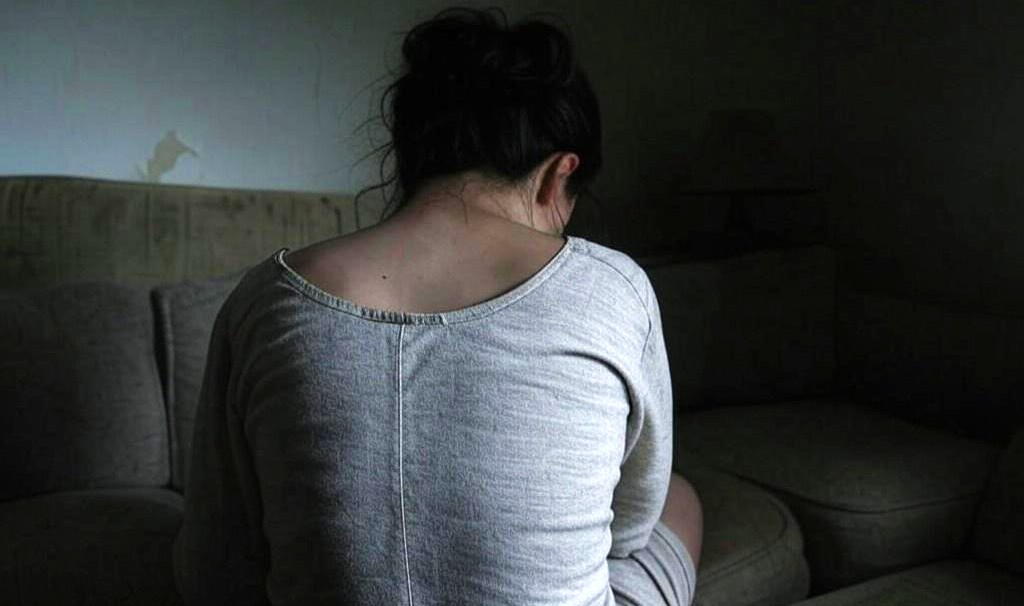 Dear readers, Catholic Online was de-platformed by Shopify for our pro-life beliefs. They shut down our Catholic Online, Catholic Online School, Prayer Candles, and Catholic Online Learning Resources—essential faith tools serving over 1.4 million students and millions of families worldwide. Our founders, now in their 70's, just gave their entire life savings to protect this mission. But fewer than 2% of readers donate. If everyone gave just $5, the cost of a coffee, we could rebuild stronger and keep Catholic education free for all. Stand with us in faith. Thank you. Help Now >
Dear readers, Catholic Online was de-platformed by Shopify for our pro-life beliefs. They shut down our Catholic Online, Catholic Online School, Prayer Candles, and Catholic Online Learning Resources—essential faith tools serving over 1.4 million students and millions of families worldwide. Our founders, now in their 70's, just gave their entire life savings to protect this mission. But fewer than 2% of readers donate. If everyone gave just $5, the cost of a coffee, we could rebuild stronger and keep Catholic education free for all. Stand with us in faith. Thank you. Help Now >
Disabled parents don't hinder student's success
FREE Catholic Classes
McClatchy Newspapers (MCT) - At 8 a.m. on a recent Wednesday you might have spotted Rebeka Willett on the Modesto Junior College campus. She was the 18-year-old in a Raiders T-shirt and jeans, giggling along with her classmates as she practiced arabesques in a dance class. You would have seen a student like any other: sleepy, but learning and enjoying herself.
Highlights
McClatchy Newspapers (www.mctdirect.com)
12/31/2008 (1 decade ago)
Published in Marriage & Family
This isn't the way some people thought Rebeka Willett's life would turn out. She is the child of two disabled parents. Her mother has cerebral palsy. Tammy Willett is confined to a wheelchair. She needs help to eat and to use the bathroom. Rebeka's father, Clarence, is developmentally disabled.
Some questioned whether the couple could raise a child. A public health nurse once told the Willetts to give Rebeka up for adoption. She said Rebeka would never learn to talk because Tammy can't talk.
This year Rebeka more than proved the critics wrong. She graduated _ on time _ from Davis (Calif.) High School. Now she's studying to be a preschool teacher. If Tammy could track down that public health nurse today, she would say, "You didn't think I could do it? Look at us now!"
Tammy developed cerebral palsy, a disorder of the central nervous system, at age 10. Doctors believe encephalitis _ inflammation of the brain _ brought on the condition. She fell into a six-week coma. When she woke up, her mind was intact, but her body was held hostage by muscles she could no longer control.
When she was 26, she met Clarence at Modesto's United Cerebral Palsy Association center. Clarence is mildly mentally retarded. His voice and demeanor sometimes seem like that of a little boy, with social skills to match. He's worked over the years at menial jobs, but doesn't work now.
The two married in 1989. Tammy's pregnancy a year later was a "surprise miracle," said Tammy in an e-mail interview. The first doctor they visited told them to leave _ he didn't want to treat Tammy. They found another physician. Rebeka was delivered by Caesarean section in May 1990, a healthy, normal baby.
Not everyone saw the birth as a blessing. When Rebeka was about 2 months old, a woman on a Dial-A-Ride van saw the young family and said, "People like that shouldn't be allowed to have children." Clarence still smarts from that wound. He's hoping the woman who made that comment will read this story. "That way they can see that we did OK with her," he said.
MOM'S NOT 'DIFFERENT' TO REBEKA
When Rebeka was a baby, Tammy was stronger than she is today. She could get out of her wheelchair and wriggle alongside Rebeka as she crawled on the floor. She could cradle Rebeka in her arms and feed her.
By the time Rebeka was 4 or 5, she could drive her mom's wheelchair. By age 6, she could do it without running into anything.
Back then, a mom in a wheelchair was a fun novelty. In fourth grade, Rebeka took her mom to school for show and tell. She showed her classmates how the chair worked and told the story of her mom's disability.
"They thought it was really cool," remembered Rebeka. When she started having friends over after school, Rebeka would explain in advance what to expect so they wouldn't stare at Tammy.
For Rebeka, there was no "a-ha" moment when she suddenly realized Tammy wasn't like other mothers. She said she's never thought of her mom in those terms. She recently learned something in a child development class that she feels explains her bond with her mom: a newborn can identify their mother's face as soon as they come out of the womb, even if there are other people around. "I think since then I just never thought of her as different."
When she was little, she would sometimes look at other kids and their parents and feel left out. If her mom wasn't disabled, it would have been easier to go places together and do activities like bowling, said Rebeka. She wouldn't have had to explain so often that no, she's not adopted.
But ask Rebeka how her life would be different without disabled parents and the first thing she says is: "I would probably be like any other teenager. I'd still be immature right now."
She's learned a lot from her mom: Be independent. Take care of yourself first so you can take care of others.
"She's taught me how to express myself for who I am and not try to be somebody else," said Rebeka. "Even though she has her disability, she's herself 24-7. She doesn't try to be somebody else and I idolize that a lot."
She's also learned survival skills and compassion, said her Davis High School counselor Rob Steves. He said Rebeka struggled academically, but didn't run from challenges. When she had trouble passing the high school exit exam in math, she got extra tutoring and went to summer school. She also benefited from plenty of support from home. Clarence spent his school career in special education. Other kids teased him. He didn't want Rebeka to suffer similar troubles, so Clarence and Tammy always have kept close tabs on Rebeka's academic progress.
"Rebeka was more of an inspiration for me than I ever was for her," said Steves. "Going through school was a little more difficult for her than everybody else, but you would never have known that. She didn't make excuses."
DAUGHTER ALSO A CAREGIVER
Along with her grandparents, her father and other family members, Rebeka has helped care for her mother since she was a child. Now she's paid for the work through a county program that provides in-home care to disabled people. She gets her paycheck, about $260, near the end of the month. It comes in handy because that's when Clarence and Tammy's funds run low. Their main source of income is $1,524 in government aid for the disabled.
Rebeka provides what's called "respite care," relieving Clarence when he needs a break. On a Thursday afternoon in November, for example, Clarence set out for the library in his electric scooter (a variety of health problems makes walking long distances difficult for him), leaving Rebeka and Tammy at home in the family's Pelandale Avenue apartment.
In the living room, Tammy sat in her wheelchair, a blue and yellow plaid adult-sized bib tucked under her neck. Rebeka sat facing her mom, spooning whipped cream from a Starbucks drink into her mouth.
Tammy's head tilted and rolled involuntarily; Rebeka aimed the spoon for the back of Tammy's mouth. Some of the drink spilled down Tammy's neck. Rebeka wiped it clean. "Are you still hungry?" Rebeka asked. "What did you eat this morning? Oh, yeah, you had oatmeal." Tammy dropped her head into a half-nod and made an "Aaah" noise. That means yes.
Next the two looked through old photos from previous Bee stories about the family. "Where did we live then?" asked Rebeka about one picture. "This place doesn't look familiar to me. When did we have grandma's mirror?"
Tammy slowly uncurled the fingers of her left hand into a sign language response. Rebeka narrated: "V ... I ... S ... A" Tammy tried again. "V ... I ... S ... I ..." Rebeka broke off. She'd figured out what her mom was saying: "Visit. We were visiting grandma."
The two usually communicate in this sort of telepathic shorthand, said Rebeka. "Most of the time I can read her mind," said Rebeka. "I guess it's just a bond that we have. She'll start to spell something and I'll know exactly what she's trying to say."
Rebeka had school work to do. After Tammy finished her drink, the two settled down in front of their respective computers. Tammy sat at her desk, which is decorated with an Elvis Presley lamp in honor of her favorite singer. She checked her e-mail, then played word games on Pogo.com. To move her computer's cursor, she used a handheld clicker hooked up to software called EZ Keys. Rebeka sat in a nearby easy chair with her laptop propped on her knees, working her way through an online quiz for her theater class.
This afternoon was typical. Sometimes they'll watch a movie together, or Tammy will help Rebeka with homework. Rebeka will read Tammy essay questions she's struggling to answer, then Tammy will type a few words to point Rebeka in the right direction.
Rebeka doesn't consider the care she provides for her mom as work. When she was younger, it sometimes felt like a burden. But now she sees it as "little stuff," a routine part of the family's daily life.
A TRIED AND TRUE ROUTINE
After Tammy and Clarence get their food stamps each month, they head to the O'Brien's Market on Dale Road. On an early November afternoon, Clarence pushed Tammy down the aisles in a purple wheelchair, a smaller, sleeker model than the motorized chair she uses at home. They didn't use a shopping list. Instead Clarence asked Tammy a steady stream of questions. "Do you want cereal? What kind of bread do you want? Do you want juice? What kind?"
Tammy's answers were tiny motions and sounds, easy to miss if you didn't know to look for them. A finger uncurling toward the dairy section was Clarence's reminder to buy American cheese slices. A tiny wail-like cry, "Eeee!" is the signal to stop and pick up some cream soda.
A stranger passing Tammy would see this: a tiny woman in clean white sneakers and a magenta sweatsuit strapped into a wheelchair. Bird-stick legs, thin arms glued to her sides, hands curled inward, head tilted at an odd angle, big lively blue eyes. She weighs about 100 pounds. Clarence can scoop her up like a rag doll. Sometimes people assume Tammy is Clarence's daughter.
Clarence visits the store at least once a day; it's friendly territory for the Willetts. Everyone knows them. The workers greet them with smiles, not stares.
Sometimes they encounter people who aren't as respectful. They remember a nasty Wal-Mart greeter who yelled at them, supposedly for blocking an entrance with Tammy's wheelchair. Rebeka marched up to the greeter and said, "My mom is independent and she can take care of herself!"
Rebeka has defended her mom like that from time to time, but she said Tammy has her own ways of retaliating against adults who stare too long. She makes a "mean ugly face" at them, which never fails to make Rebeka crack up.
Locked inside Tammy's weakened body is a hidden territory, where her mind roams strong as ever. Her family knows this place. It's where an intelligent, light-hearted woman lives. You can glimpse that personality in e-mails she writes or when her eyes crinkle at jokes. You'll find it in the poetry she's written. Her favorite is one called "Handicapped Persons We Are People Too."
It includes the verse, "We may walk funny, we may talk funny. There may be some things we can't do, but there are a lot of things we can do. Sometimes, better than you can."
That little joke, written when she was a teenager, still makes Tammy laugh.
TREASURING HER FAMILY
Now that she's in college, Rebeka says she can picture moving out of her parents' house. But she's in no rush. Lifetime TV movies have put scary ideas into her head about living alone. Right now she's saving money for a truck, then she'll think about getting her own apartment somewhere down the road. She plans to get her child development degree from Modesto Junior College, then find a job teaching preschool.
But her thoughts these days are on her favorite holiday, Christmas. She bought presents for Tammy and Clarence weeks ago. Her mom got Tweety Bird pajamas, her dad some DVDs, including his favorite movie, "Driving Miss Daisy." Tammy does all her shopping online. Rebeka's presents included a Raiders pillow, a Tinkerbell clock and a computer printer.
Recently, Rebeka still was working on a special gift for her parents _ a PowerPoint presentation of old family snapshots. Sometimes she pulls photo albums down from the top of her closet. She thinks about what would have happened if Tammy hadn't been able to have children, or if she had died in childbirth. In the presentation, Rebeka wants to tell Tammy that she's a great mom and she's been a big influence on her life.
"I feel that she's the most wonderful, smartest woman that I've ever known in my life," said Rebeka. "She's just a wonderful person to be around. I wouldn't trade her for any other mother, or any other person in the world."
___
© 2008, The Modesto Bee (Modesto, Calif.).
Join the Movement
When you sign up below, you don't just join an email list - you're joining an entire movement for Free world class Catholic education.
-

-
Mysteries of the Rosary
-
St. Faustina Kowalska
-
Litany of the Blessed Virgin Mary
-
Saint of the Day for Wednesday, Oct 4th, 2023
-
Popular Saints
-
St. Francis of Assisi
-
Bible
-
Female / Women Saints
-
7 Morning Prayers you need to get your day started with God
-
Litany of the Blessed Virgin Mary
A Future for Life: Introducing the Winners of the Priests for Life Pro-Life Essay Contest
-

Reflections on Pope Francis' 2025 World Day of Peace message
-

Exposing the Dark Reality of Sex Trafficking
-
Trump's Bold Geopolitical Moves: A Call for Reflection from a Catholic Perspective
-
Pope Francis Calls for Action Against Child Exploitation and Abuse
Daily Catholic
 Daily Readings for Thursday, January 09, 2025
Daily Readings for Thursday, January 09, 2025 St. Adrian, Abbot: Saint of the Day for Thursday, January 09, 2025
St. Adrian, Abbot: Saint of the Day for Thursday, January 09, 2025 Prayer for a Blessing on the New Year: Prayer of the Day for Tuesday, December 31, 2024
Prayer for a Blessing on the New Year: Prayer of the Day for Tuesday, December 31, 2024- Daily Readings for Wednesday, January 08, 2025
- St. Thorfinn: Saint of the Day for Wednesday, January 08, 2025
- St. Theresa of the Child Jesus: Prayer of the Day for Monday, December 30, 2024
![]()
Copyright 2024 Catholic Online. All materials contained on this site, whether written, audible or visual are the exclusive property of Catholic Online and are protected under U.S. and International copyright laws, © Copyright 2024 Catholic Online. Any unauthorized use, without prior written consent of Catholic Online is strictly forbidden and prohibited.
Catholic Online is a Project of Your Catholic Voice Foundation, a Not-for-Profit Corporation. Your Catholic Voice Foundation has been granted a recognition of tax exemption under Section 501(c)(3) of the Internal Revenue Code. Federal Tax Identification Number: 81-0596847. Your gift is tax-deductible as allowed by law.









 Daily Readings for Thursday, January 09, 2025
Daily Readings for Thursday, January 09, 2025 St. Adrian, Abbot: Saint of the Day for Thursday, January 09, 2025
St. Adrian, Abbot: Saint of the Day for Thursday, January 09, 2025 Prayer for a Blessing on the New Year: Prayer of the Day for Tuesday, December 31, 2024
Prayer for a Blessing on the New Year: Prayer of the Day for Tuesday, December 31, 2024

